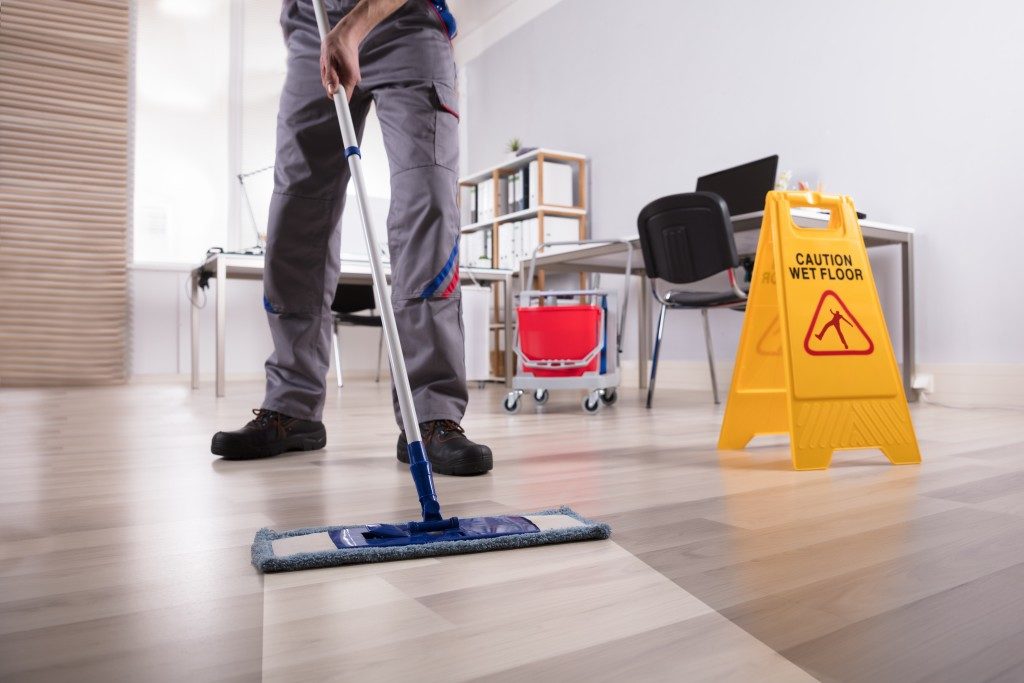Your office may have started as a well-organised and spacious workspace, but through time it will accumulate a lot of useless clutter that won’t only make your office feel cramped, but may even potentially become tripping or fire hazards if not organised properly. Additionally, you also have to consider how clutter affects your office employees, an unruly, disorganised, and cramped office can significantly affect employee morale and productivity. That said, you need to do some decluttering or spring cleaning once in a while, and here are tips for you to keep in mind when doing so:
Make a Schedule and Plan
Decluttering should be scheduled beforehand as to minimise disruption of office operations. You can reserve one workday solely for decluttering and cleaning of the office, and everyone should be well-informed. There should be a solid game plan as to how the decluttering should happen: staff assignments, what to throw away and what to keep, where to dispose of certain items, how to dispose of them, and so on.
Buy the Supplies You Need
One of the most common errors, when spring cleaning is forgetting to get the necessary supplies needed such as boxes, bins, and any other items you may need to help, organise your office. You may also want to consider buying cleaning materials such as cleaning wipes, keyboard brushes, disinfectant sprays, and even computer cleaning material if cleaning is part of your agenda. Failing to acquire these items would result in inefficient decluttering as well as wasted time.
Sort Smart
Treat spring cleaning or decluttering as somewhat of a move, wherein you’ll have to carefully sort which items and documents you need, and which ones you don’t. In an office setting, it may be difficult to throw away documents due to the fear that you might need it in the future. A lot of paper and document clutter are from the paperwork that is kept just in case they are needed (such as old reports and contracts). For these documents, it’s best to invest time and resources in properly labelling, cataloguing, and storing them (perhaps in a storage room or file cabinet) to prevent them from crowding the office.
Consider Re-arranging
When decluttering, you might also want to see if it’s time to make a few changes in the office. If you’re able to free up a considerable amount of space, you can consider changing up the office layout or even adding a few tables and other fixtures in the office.
Separate and Shred Sensitive Documents
 Throughout your office’s operations, you’d be generating, using, and storing much paperwork which may contain sensitive or private data from your operations or your clients such as financial data, private information, trade secrets, and even bank/credit card accounts. The last thing you’d want is to have someone snooping around your trash or coming across these sensitive documents in the landfill or waste recycling/disposal facilities. Your office should have protocols on labelling, sorting, storing, and disposing of confidential documents and ensure that they’re shredded before disposal, or sent to certified paper incineration companies.
Throughout your office’s operations, you’d be generating, using, and storing much paperwork which may contain sensitive or private data from your operations or your clients such as financial data, private information, trade secrets, and even bank/credit card accounts. The last thing you’d want is to have someone snooping around your trash or coming across these sensitive documents in the landfill or waste recycling/disposal facilities. Your office should have protocols on labelling, sorting, storing, and disposing of confidential documents and ensure that they’re shredded before disposal, or sent to certified paper incineration companies.
Proper Disposal
You should have a plan with regards to the disposal of various wastes. You must have different kinds of wastes sorted out. Some paper and folders may even be recycled as scratch paper. You may also want to consider contacting a waste management company to collect your paper wastes for recycling; paper recycling may even be considered as a cheaper option than hauling and disposing of them in landfills.
Conclusion
Decluttering should be an important and regular part of any office operation to ensure a clean, spacious, and productive office. So, try to take a look around your office and see if it’s time to schedule one soon, and make sure that you follow these simple yet effective tips.



